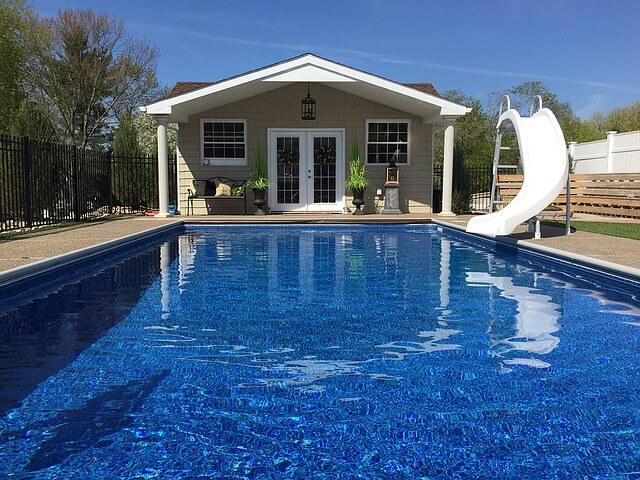How Much Value Does a Pool Add?

Swimming pools can be fun for homeowners and their families, especially if you love to swim. But what many homeowners wonder is; how much value does a pool add to my home? Some even wonder if pools can decrease property value.
First things first: It depends on location. Being in Dallas – Fort Worth, the climate is warmer though it does get cold enough during Winter to require a pool cover.
If you are considering adding a pool to your home, the initial cost is going to be of primary concern.
The cost of maintenance is something you should also consider, prior to making the jump into the deep end.
So when does a pool make sense for homeowners?
When a Swimming Pool is a Good Investment
-
You live in a high-end neighborhood and many of the surrounding homes have pools
-
Your yard is large enough to have a pool —- and leftover yard space
-
You are in a warmer climate (DFW, for example)
When all is said in done, a home’s resale value can increase up to 7% with the new pool addition. That presumes that your circumstance meets the suggested criteria and that other aspects of your home meet the minimum requirements.
Still, it remains your choice —- and your choice alone —- to determine the ROI of a swimming pool. After all, if the pool can enhance your quality of life, there is no way to measure that.
What we can measure however is the cost of building and maintaining your swimming pool
Pools Are Expensive
A 600 square foot pool installation costs around $30,000. When you consider state-sanctioned fences and other amenities, the price of installation can creep towards $100,000.
Most in-ground pools are built with Gunite which is a concoction of sand and cement and can be morphed into almost any size and shape. Needless to say, it’s not cheap. You can opt for lower-end materials but they require more regular maintenance and homebuyers will want them as updated as possible before buying.
Don’t Forget Heating & Filtration
A filtration pump costs a significant amount in both money and energy. Obviously, the most efficient pumps can lower energy costs which cut expenses considerably
If you’d like to heat-up your pool, you’ll need either a gas or electric heater. Your choice will depend on how much you want to save in energy costs and maintenance. Electric heat pumps take longer to warm the pool but cost much less in energy and maintenance.
Finally, during winter-time, you will need to cover your pool. Some even choose to cover it in the summer when it is not being used. A solar blanket can reduce heating and lower energy costs.
Can’t Forget About Maintenance
Has the idea worn on you yet? If not, consider that pools need PH balance and proper calcium and alkaline levels. The most important thing is to keep bacteria out of the pool so that swimmers are completely safe.
The good news is that there are plenty of options for balancing your chemical levels. Most use chlorine because it is cost-efficient but newer varieties have proven effective as well.
In Dallas – Fort Worth, you can expect to spend around $600 per year on maintenance. That does not include the upfront cost of a robot cleaner device (which can run up to $800) but will save you hours of manual cleaning or the cost of hiring someone for the task.
Final Call
At the end of the day, a pool can absolutely increase home resale value. So when someone asks how much value does a pool add? The quick answer is 7%. But the homeowner must realize that their situation varies from others. If you live in a neighborhood with lots of pools, not having one may actually decrease your home’s value. On the contrary, if you reside in a place that has few if any pools, it may not matter.
Insurance is another factor to consider, as the rates are typically adjusted with the addition of a pool. The ultimate factor should be how much you would get out of a pool yourself. Will it increase your quality of life? Will it be beneficial to family members? If the answers are yes, then it is something to consider.

